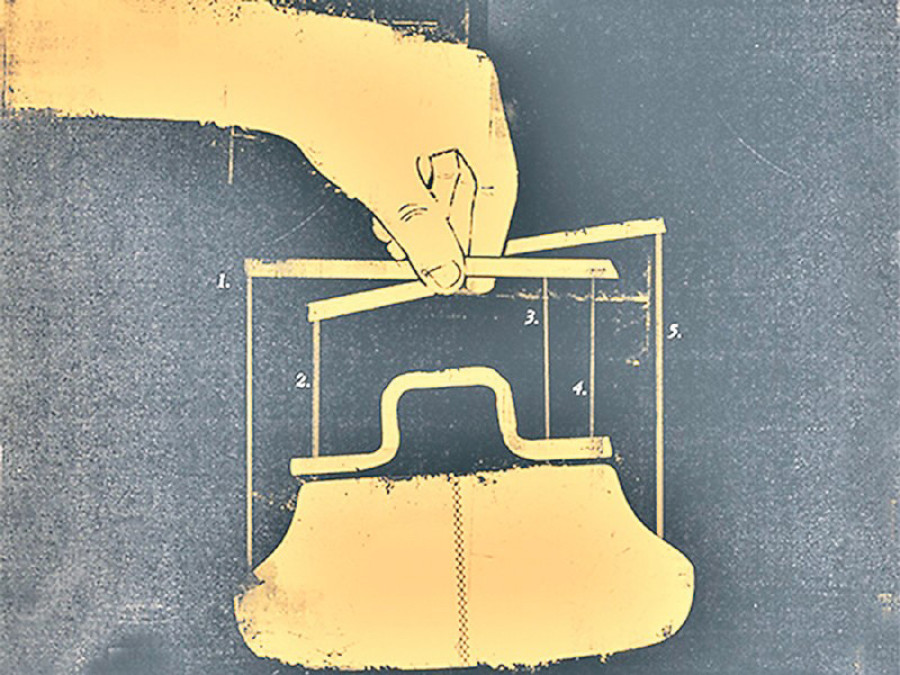Opinion
Politics and policing
Evidence suggests a strong police-politician nexus has the potential to embolden criminal elements
Subindra Bogati
It is not that easy to be a police officer in Nepal. Nepali police officers are subjected to intense public pressure and are expected to deliver results while working within the confines of the law. They are expected to do so under difficult conditions, with limited resources and poor infrastructure. Often, they also come under unwarranted political interference, which makes it all the more difficult for them to enforce laws objectively and judiciously.
Despite these external and internal hurdles, Nepal Police, to a large extent, continues to fulfil its duties. In fact, individual officers within the Nepali police frequently instil optimism and confidence in the public. These officers work hard to maintain a commendable service career record. These police officers are often regarded as community heroes and their work helps maintain the public’s faith in the police. Their accomplishments also serve as evidence of the state’s increased efforts to combat crime and keep peace. Surveys by international organisations have shown that public trust in the police is continually increasing.
IGP appointment
In the Panchayat era, the police were utilised to contain popular dissent; they were used to arrest, intimidate and silence those associated with political opposition. Since the restoration of democracy in 1990, there has been discussion on reorienting the police towards a more people-focused service; however, the parties in power have politicised the force. The parties misuse power to award appointments and transfers, which are biased and determined by undue favours rather than merit. We have now developed a culture of choosing “Hamro Maanche” (our person) over a “Ramro Manche” (competitive person). The recent episode of Deputy Inspector General of Police (DIG) Jaya Bahadur Chand’s appointment as the Inspector General of Nepal Police (IGP) is a case in point. This appointment may have been a severe blow to the morale of many competitive police officers and serves to inculcate wrong values in the minds of young entrants to premier services. It was a welcome move when the Supreme Court issued a stay order against his promotion.It is imperative that the appointment of the IGP remains an unbiased process and is free from undue politicisation. Otherwise, the IGP’s loyalties are likely to align more with the leaders who ensured his appointment rather than with the institution itself. This would endow the political party responsible for the appointment with considerable influence over the police force, thus creating an atmosphere where affiliated political parties could mobilise the police to advance their political objectives.
In the past, we have seen that political interference in investigations and prosecutions, political pressure to drop selected cases and release of politically connected suspects have contributed to a culture of impunity. The consequences of these actions have already manifested themselves in the current functionality and perception of the police force.
Corruption over commitment
A system that rewards political loyalties and corrupt practices over job performance and commitment to the law benefits both politicians and underperforming officers with questionable commitment to the people’s well-being. While politicians need money and muscle to keep their positions and win elections, police officers who lack a good track record need political patronage to secure comfortable postings. This explains the emergence of a strong symbiotic relationship between politicians and elements within the police force.
Historical evidence suggests a strong police-politician nexus has the potential to embolden criminal elements. Beholden to their political masters, the police take less interest in the difficult task of enforcing the rule of law and spend more time serving their benefactors. Those with political influence and money have little difficulty in manipulating the police for their own selfish ends. The nexus weakens fear of legal punishment and can create an environment of lawlessness, in which organised crime can spread its tentacles.
The Nepal Police should not be politicised. Political leaders elected by the people may argue that they are ultimately accountable to the public, so they have to be involved in decisions about promotions and transfers in the police. However, if policing becomes politicised and the police are seen as partisan, the trust and legitimacy accorded to them by the public will be affected. It will also grant impunity to police officers who are politically connected, and may render the police leadership incapable of disciplining the force and managing their departments.
Short-term tenure of the political leaders is detrimental to the provision of greater operational autonomy to the Nepal police. The creation of a humane, law-abiding and locally accountable police system is still not on the agenda of any political party. Political developments will continue to affect the functioning of the police department and limit its ability to develop as a democratic force.
Problems with professionalism, transparency and accountability will remain and hinder relationships with the broader society. There is a risk that the whole system could collapse unless immediate steps are taken. So the people should pressurise the political parties to mend their ways, and ensure that police officers do not become the stooges of political leaders, but are accountable to the constitution instead.
Bogati is the Chief Executive of Nepal Peacebuilding Initiative




 22.12°C Kathmandu
22.12°C Kathmandu










